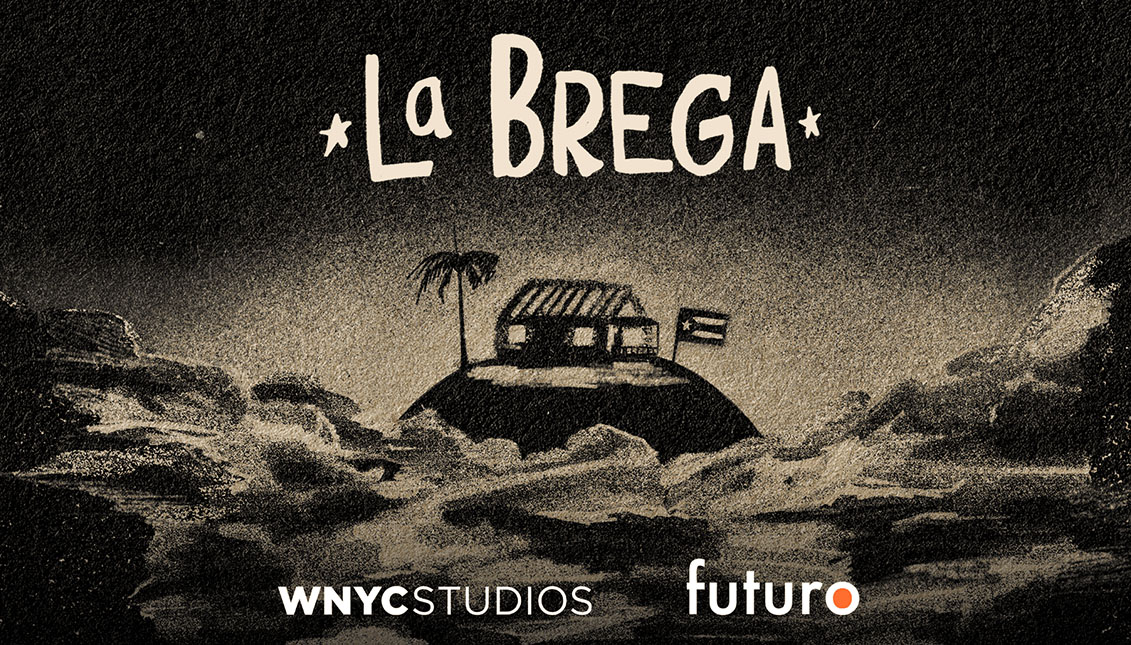
La Brega, Puerto Rico's past and present as you've never heard it before.
Boricuas are always "en brega," but they have their reasons. Now a series of podcasts led by academics and journalists spotlight the island and its history in…
Why do Puerto Ricans spend their lives "bregando" — struggling — against adversity?
This is the question that inspired La Brega: Stories of the Puerto Rican Experiences, a much-needed bilingual podcast series created by Puerto Rican journalists and academics and co-produced by WNYC Studios and Futuro Studios that champions a shift in narratives about the island.
After all, who better than a Puerto Rican to tell the world about the problems an island is still part of the U.S. territory but not yet a state faces?
Between independence aspirations, U.S. pressures, and a handful of facts, La Brega's protagonists expose their years-long research.
"It is this word that we use all the time," New York-born Puerto Rican journalist Alana Casanova-Burgess, host of “La Brega: Stories of the Puerto Rican Experience," told NBC News.
"La brega" describes what Puerto Ricans do when they are faced with a challenge, or even an injustice, they can't resolve — and the only option is to live with it, the media adds.
"Why do we have a society and a government that asks us to be in "la brega" so often?" said Casanova-Burgess. "It has so many different facets because the term is hopeful in a way, but it's also sad and tiring because, at the end of the day, we deserve more."
RELATED CONTENT
Casanova-Burgess starts this series with Puerto Rican academic and Princeton University professor emeritus Arcadio Díaz Quiñones, giving some examples of this ongoing struggle: the closure of hundreds of schools, the expensive and dubious electricity services, the innumerable potholes in the roads...
And it looks back — because the past of a nation is also its present — to tell us about suburbs such as Levittown, built in the 1960s as a carbon copy of the American suburbs; a failed experiment of "the American dream," says the journalist, whose grandparents were among the first residents of Levittown.
As well as the persecution of those who have tried to change the course of the island through the historical "carpetas," which were files compiled by the police with the support of the FBI over four decades and which record the surveillance to which were subjected those who advocated for the independence of Puerto Rico, but also feminist organizations, trade unions, etc.
As the Puerto Rican photographer and journalist Chris Gregory-Rivera has well documented in a recent exhibition on the aforementioned "carpetas," the result of six years of research that can be seen at the Abrons Arts Center in New York.
"There was not a fair opportunity for Puerto Ricans to explore independence as an option because both the Puerto Rican and U.S. governments would not allow that option to be on the table. And now, we have to 'deal' with that fact," said Gregory-River.
These and other facts are extensively dissected in the episodes of this podcast, along with the debt crisis and the disasters of Hurricane Maria in the communities, the "struggle" to decolonize the Puerto Rican territory or the question of identity.
The series will be broadcasted in English and Spanish on February 24. Some episodes will also be available on Latino USA and On The Media, Futuro Media, and WNYC Studios, respectively.











LEAVE A COMMENT:
Join the discussion! Leave a comment.